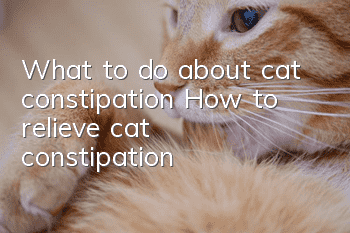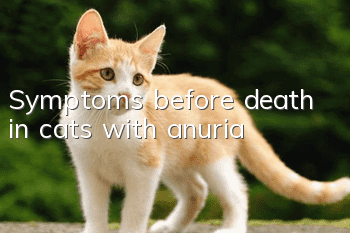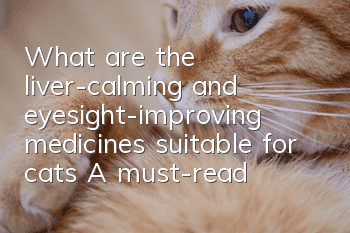What to do about cat constipation How to relieve cat constipation

When the weather is dry, dogs and cats are prone to difficulty in defecation, dryness, and even shouting due to pain, which makes owners feel distressed. So how to relieve cat constipation? Let’s learn about it with the editor.
Feline intestinal constipation, also known as fecal constipation, is a digestive system disease caused by incomplete or complete intestinal obstruction due to intestinal motility and secretion disorders, stagnant and dry intestinal contents. This disease mostly occurs in the colon and rectum of cats, especially in young cats, elderly cats and long-haired cats.
The longer the constipation lasts, the more difficult it is to treat. In severe cases, autopoisoning or other secondary diseases may worsen the condition. There are three factors that cause this disease:
1. Feeding and management: Factors such as long-term feeding of dry food, lack of drinking water, eating human hair and foreign objects, lack of exercise, and sudden changes in feed, environment, and management may all induce this disease.
2. Diseases: Painful defecation diseases (such as rectal polyps, proctitis, rectal stricture, tumors, anal abscess, etc.), constipation occurs due to the disappearance of the normal urge to defecate.
3. Self: Diseases that impede defecation movements (such as medullary joint dislocation, pelvic fractures and hind limb fractures, etc.) can cause constipation.
Symptoms:
In the early stage, the sick cat exerts force to defecate and excretes a small amount of dry stool with mucus or a small amount of foul-smelling loose stool. In the later stages of the disease, sick cats may become restless, try to defecate but cannot do so easily, become nervous, cry, and frequently review their abdomen. Then the appetite decreases or disappears, and the spirit becomes depressed. Some had vomiting, obvious tenesmus, enlarged abdominal circumference, and intestinal bloating.
How to relieve cat constipation?
1. Enema therapy: suitable for mild and simple constipation. Use 40-80 ml of warm soapy water and pour it into the intestine with an enema device, and use external abdominal pressure to moderately press the fecal mass in the intestine. It usually works.
2. Drug therapy: Take an appropriate amount of laxatives orally. For example, 5-30 grams of magnesium sulfate or 5-50 ml of liquid paraffin oil should be taken orally.
3. Surgical therapy: For severe intestinal constipation, when the above methods cannot be used, surgery can be performed to remove the fecal matter from the intestinal cavity.
Another way:
You can give the kitten a spoonful of salad oil to lubricate his intestines. 10ml at a time, fed 2-3 times, should help. In addition, you can give him a little milk, but not too much. Usually the bottom of a bowl is enough.
- Why do cats sneeze in summer?
- How can you help your cat develop good habits? Correct your cat’s bad habits!
- How do cats show signs of being scared?
- Don’t rush to the pet hospital after your pet cat gets sick
- Is it normal for kittens to have eye droppings every day?
- How to eliminate hair balls for Chinchilla cats?
- What are the key points in vaccinating cats?
- How to train your cat? Cat training tips!
- What does it mean when a cat's tail slaps the ground?
- Why do cats like boxes



